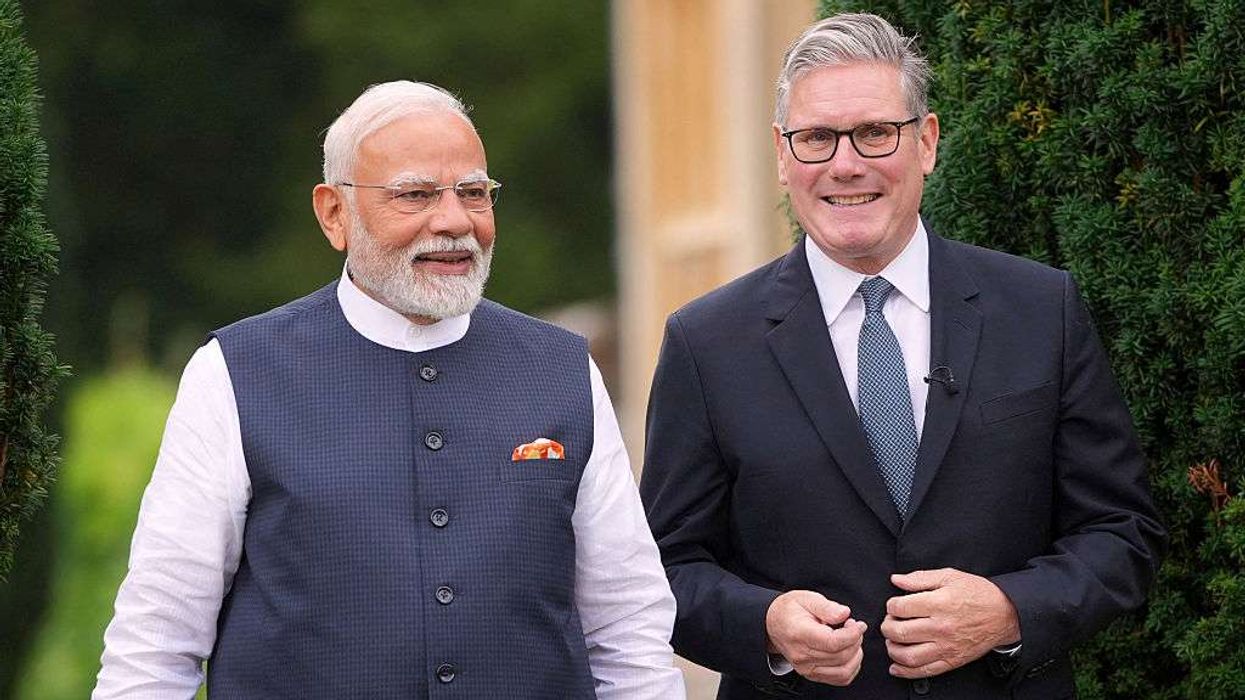A RESEARCH partnership between Imperial College London and the Indian Institute of Technology (IIT) Bombay is in the spotlight ahead of British prime minister Keir Starmer’s visit to Mumbai next week.
The project aims to use quantum computing and biotechnology to help farmers grow stronger, more climate-resilient crops.
According to a statement, it builds on quantum computing as a central component of the India–UK Technology Security Initiative (TSI), which seeks to cultivate healthier soil microbes and develop innovative strategies to protect crops in arid and climate-vulnerable regions.
The TSI, signed last year, is expected to feature prominently when Starmer joins his Indian counterpart, Narendra Modi, at the Global Fintech Fest (GFF) 2025, which begins in Mumbai on Tuesday (7).
Imperial College London’s President, Professor Hugh Brady, will be part of the prime ministerial delegation on Starmer’s first official visit to India as UK prime minister.
While further collaborations between Imperial and Indian institutions are anticipated, a team led by Dr Po-Heng (Henry) Lee of Imperial and Dr Indrajit Chakraborty of IIT Bombay is already leveraging quantum computing to model the complex interactions between plants and soil bacteria.
“This collaboration brings together IIT Bombay’s expertise in microbial ecology and genomics with Imperial’s strengths in bioinformatics and quantum computing simulation,” said Dr Lee. “The project paves the way for quantum technologies to address urgent challenges in global food security and climate resilience.”
By understanding how plants and beneficial bacteria communicate, researchers hope to enhance natural processes that make crops grow more robustly and withstand drought and extreme weather.
Traditional computing cannot fully capture the intricacy of these interactions, but quantum simulations of gene regulation and microbial signalling could lead to new ways of improving soil health and crop yields, particularly in dry regions.
“Through our shared expertise, we are opening new frontiers in sustainable agriculture. This partnership not only deepens our knowledge of plant–microbe interactions but also exemplifies how international collaboration can drive innovative solutions to the climate challenges faced by communities worldwide,” said Dr Chakraborty.
The research centres on a plant compound called strigolactone, which acts as a messenger enabling plants and bacteria to share information. Scientists are also studying the benefits of biochar – a charcoal-like soil additive – in strengthening these symbiotic relationships.
Experimental work at IIT Bombay is exploring how synthetic strigolactones affect plant growth and microbial behaviour, while Imperial’s team is developing quantum circuit models to simulate microbial communication.
The project is funded by the India Connect Fund, a key initiative under Imperial’s new Bengaluru-based science hub, Imperial Global India. The fund supports up to 25 joint research projects annually between Imperial and Indian institutions in fields such as artificial intelligence, quantum science, biotechnology, and clean energy.
Imperial College London, ranked second globally, established its Bengaluru hub to further strengthen scientific and innovation partnerships between the UK and India.
(PTI)





